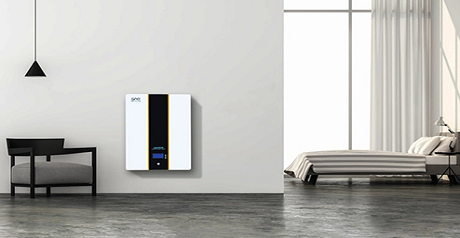As the world continues to progress towards sustainability, off-grid solar systems have reached near-border popularity. Such devices enable homeownersand businesses to generate their electricity from the sun, promoting energy independence and decreasing our dependence on fossil fuels (Go Solar). At the heart of any off-grid solar setup is the off-grid solar inverter, which helps convert solar energy into usable power. In this article, we talk about the role and features of off-grid solar inverters and also the pros and cons of investing in one !

An off-grid solar inverter is what? An off-grid solar inverter is a device that converts the DC electricity generated by the solar panels into AC electricity which can power most of the home appliances and devices. Off grid solar inverters are for (you guessed it) off the grid usage (like grid-tied inverters, but not for a grid that we can send excess electricity to). However, an inverter in an off-grid system has to manage power flowing from batteries also. These batteries store surplus solar energy generated during the day – enabling you to utilise solar even at night or cloudy days when solar is less productive. It is the inverter that puts your system to work and gives you a reliable power supply.
An off-grid solar inverter has the following functions in a solar energy system.
Inverters: As mentioned above, all solar panels generate DC electricity, but many electrical devices run on AC electricity, so an inverter is needed to convert it into AC electricity. Solar panels generate DC electricity, which the inverter converts into AC electricity.
Battery Management – Off-grid solar systems use batteries to store energy for times when solar generation is low. The inverter manages the charging and discharging of the battery – charging it when there is solar energy available to use, discharging it when energy is required.
Load Management: Since off-grid systems have limited power generation capabilities, the inverter plays an essential role in load management by making sure only the required loads take power. It also enables efficient usage of available energy and prevents system overload.
Power Conditioning: The inverter converts the direct current output from the solar panels into alternating current, ensuring it’s stable and clean, to be used by home appliances. Such a condition is particularly crucial for sensitive electronic appliances, which need a smooth power supply.
What are the Implications of an Off-Grid Solar Inverter
An off-grid solar inverter allows you to generate your electricity without the utility grid. This autonomy is crucially important in remote locations where grid access is nonexistent or unreliable.
Though the upfront investment in an off-grid solar system may be steep, oftentimes the long term savings on power bills can be quite large over time. Once the system is installed, you have your free solar energy, and your dependence on purchased power will reduce or completely vanish !
In areas where the power grid can be unreliable or prone to outages, off-grid systems are more dependable. The integrated account creates a stable supply of society in your household with solar power and also battery storage.]
Many off-grid solar inverters are scalable, allowing you to size your system to meet your future energy capacity needs by adding more panels, batteries, or inverters as needed. This means that your system can grow when your power consumption expands over time.
They are the heart of every off-grid solar system. It enables conversion of solar energy into flowable energy, facilitates battery management, and ensures good operation of off-grid solar stations. Using the proper off-grid inverter allows you to gain energy independence, lower your carbon footprint, and benefit from dependable, cost-effective energy regardless of your location. So whether you’re designing a system for a remote cabin, a homestead in the country, or a sustainable community that wants to go off the grid, choosing the right inverter is crucial to the success of your solar energy system.